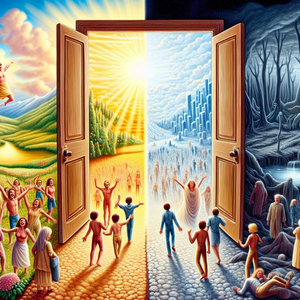The Hidden Heroes of Democracy

Poll workers, also known as election inspectors or judges, serve as the backbone of the electoral process. Their responsibilities are manifold: setting up polling places, checking in voters, providing information about the voting process, and ensuring that election laws are upheld. Essentially, they are the face of democracy at the grassroots level, facilitating the casting of votes and ensuring that every eligible citizen has the opportunity to participate in the democratic process. To prepare for their roles, poll workers often undergo comprehensive training, learning about the voting process, the technology used in polling places, and the legal requirements governing elections. This training is crucial, especially in a time when misinformation about the electoral process is rampant. By providing accurate information and guidance, poll workers help foster trust in the electoral system and encourage civic engagement. For instance, during the 2020 U.S. elections, poll workers played a critical role in managing the unprecedented increase in mail-in voting and ensuring that voters understood how to properly cast their ballots. Their efforts were essential in maintaining order amid the confusion and anxiety that surrounded the election, thus reinforcing the integrity of the democratic process.
Challenges Faced by Poll Workers
Despite their vital contributions, poll workers face numerous challenges. Long hours, often extending from early morning until well after polls close, can be physically and mentally exhausting. The pressure of managing high volumes of voters, sometimes in the face of hostility or confusion, adds to the stress of the role. Furthermore, poll workers must navigate the complexities of diverse voter needs, including language barriers and accessibility requirements for individuals with disabilities. The COVID-19 pandemic has compounded these challenges. Many potential poll workers, particularly older individuals who are at higher risk for severe illness, have opted out of serving, leading to staffing shortages at polling places. This has placed an increased burden on those who do continue to serve, heightening the need for enthusiasm and engagement in this civic duty. In some areas, poll workers have reported feeling overwhelmed, facing long lines of anxious voters while also managing the health protocols necessary to keep everyone safe.
Compensation and Its Reflection on Civic Duty
One of the most contentious aspects of poll working is the issue of compensation. While some states pay poll workers a reasonable hourly wage, others offer minimal compensation that barely covers the time and effort involved. According to recent data, poll workers can earn between $10 to $20 per hour, depending on the state and local jurisdiction, but this disparity raises important questions about how society values civic engagement and the labor that supports democratic processes. In many areas, poll workers are compensated less than minimum wage for their work, which can deter individuals from volunteering. This situation underscores a broader societal attitude towards civic duty; when financial incentives are lacking, the emphasis on civic responsibility can diminish. If we truly value democracy, it is imperative that we recognize and reward the contributions of those who facilitate it. For example, some states have initiated programs to increase pay for poll workers, recognizing the essential service they provide. These initiatives not only help attract more volunteers but also reinforce the message that participating in democracy should be valued and compensated fairly.
As we reflect on the electoral process, it is essential to acknowledge the hidden heroes of democracy—the poll workers who dedicate their time and energy to uphold the democratic system. Their roles are crucial for ensuring free and fair elections, and their experiences highlight both the challenges and rewards of civic engagement. By addressing issues of compensation and recognition, we can better support these individuals and encourage greater participation in the electoral process. As we move forward, let us not forget the importance of valuing those who serve on the front lines of democracy, ensuring that every voice is heard and every vote counts. In doing so, we honor not only their contributions but also the very principles of democracy itself. Recognizing the commitment and sacrifices of poll workers is not just about acknowledging their hard work; it is a call to action for our society to invest in those who ensure the foundational processes of democracy are upheld. As we celebrate our democratic rights, let us also celebrate those who make it possible—our hidden heroes.
Election Operations Coordinator
State and local election offices, non-profit organizations focused on civic engagement
Responsibilities
Plan and coordinate election logistics, including polling place setup and staffing.
Ensure compliance with local, state, and federal election laws and regulations.
Manage the training and scheduling of poll workers to ensure adequate coverage.
Required Skills
Strong organizational and project management skills.
Familiarity with election laws and voting technology.
Excellent communication skills to liaise between election officials, poll workers, and the public.
Voting Technology Specialist
Election technology firms, local election offices
Responsibilities
Oversee the installation and maintenance of electronic voting machines.
Provide technical support to poll workers and voters regarding voting technology.
Conduct training sessions for poll workers on how to operate voting equipment.
Required Skills
Technical proficiency with voting systems and software.
Ability to troubleshoot issues under pressure.
Prior experience in IT support or a related field is preferred.
Civic Engagement Coordinator
Non-profit organizations, government agencies, civic engagement groups
Responsibilities
Develop and implement outreach programs to encourage voter participation.
Collaborate with community organizations to host events and informational sessions about the voting process.
Analyze voter turnout data to assess the effectiveness of engagement strategies.
Required Skills
Strong interpersonal and networking abilities.
Experience in community organizing or public relations.
Knowledge of social media strategies for outreach.
Election Security Analyst
Government agencies, cybersecurity firms, election security non-profits
Responsibilities
Assess and mitigate risks to election integrity and security.
Monitor and analyze potential threats to voting systems and processes.
Collaborate with IT and law enforcement to develop security protocols.
Required Skills
Background in cybersecurity or information security.
Strong analytical skills to evaluate security measures and incidents.
Knowledge of election laws and regulations related to security.
Poll Worker Trainer
Local election offices, civic organizations, educational institutions
Responsibilities
Develop training materials and conduct workshops for new poll workers.
Ensure that all poll workers are knowledgeable about voting procedures and legal requirements.
Provide ongoing support and resources for poll workers during elections.
Required Skills
Strong presentation and training skills.
In-depth knowledge of the electoral process and voting technology.
Ability to adapt training methods to accommodate diverse learner needs.


